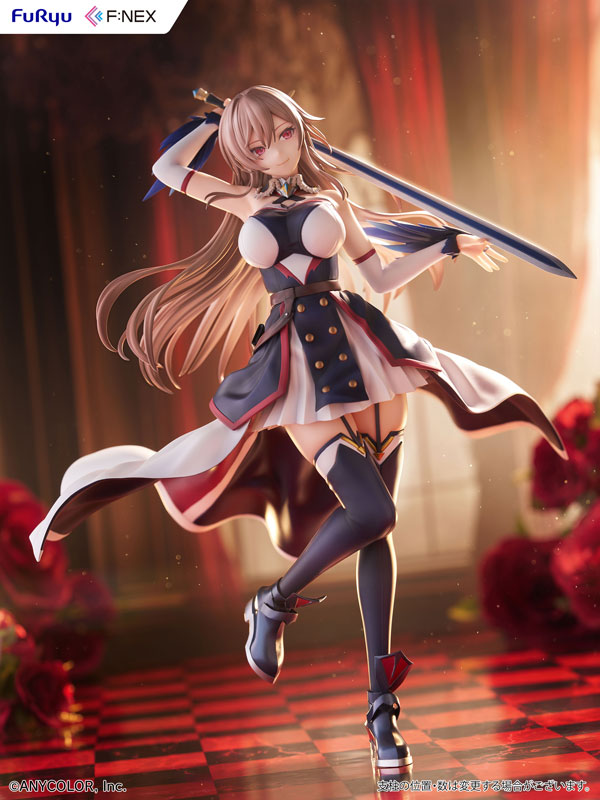Why does Vivi call Zoro Mr. Bushido?
Why Does Vivi Call Zoro Mr. Bushido in One Piece? Explained!

We all know that Roronoa Zoro is one of the most powerful One Piece characters. One of the protagonists of the series, Zoro has demonstrated fascinating skills over the years and has fought (and defeated) some of One Piece's most powerful villains, mainly thanks to his sword fighting skills and abilities. He has been given different names and nicknames throughout the story, but one name in particular, Mr. Bushido, has fans wondering about the story behind it. In this article, we will explain why Vivi calls Zoro Mr. Bushido in One Piece.
Bushidō (Japanese: 武士道) is a Japanese term that literally means "way of the warrior." It is actually a set of moral codes and values that govern the attitudes, behavior, and lifestyle of a samurai. Since Zoro uses the katana as his weapon and is a skilled swordsman, like a true samurai, Vivi named him Mr. Bushido in reference to the samurai code, effectively calling him a samurai.
The rest of this article will be divided into two sections. The first will explain why Nefertari Vivi calls Zoro Mr. Bushido, while the second will explain what bushido actually is and how it worked in Japan. There will be no spoilers in this article, as we will be explaining the story behind a well-known fact.
Why does Vivi call Zoro Mr. Bushido in One Piece?
The video we linked above shows you that Nefertari Vivi actually called Zoro "Mr. Bushido" in One Piece. It was a very symbolic nickname, and if fans didn't know the story behind it, it might have seemed confusing. But the story behind this name is actually quite simple and just requires a little history.
Namely, bushidō is actually a set of moral codes and values that govern the attitudes, behavior, and lifestyle of samurai. Now, everyone knows that samurai were sword-wielding warriors in medieval Japan who adhered to a very strict warrior code. While Zoro is not a samurai, his personal moral code as a warrior, as well as the fact that he wielded katanas in battle, are relevant enough to qualify him as a samurai, at least on a symbolic level.
And that's why Nefertari Vivi called him Mr. Bushido. It was a reference to the samurai's moral code, and since Zoro looked quite similar to a samurai, the name itself made perfect sense. In the next section, we'll explain what real bushidō was so you can truly see how similar Zoro's way of life was to real bushidō.
What is bushidō?
“Bushidō is therefore the code of moral principles that samurai were required or instructed to observe… Most often, it is an unspoken and unwritten code… It was an organic growth of decades and centuries of military career. To become a samurai, this code must be mastered.
– Nitobe Inazō, Bushido: The Soul of Japan (1899)
Bushidō (Japanese: 武士道, literally "Way (dō) of the Warrior (Bushi)") is today understood to mean the code of conduct and philosophy of the Japanese military nobility, whose roots go back to the late Middle Ages in Japan. Basic characteristics were borrowed from Shintō, Buddhism, and Confucianism. The term owes its expression and popularity to Inazo Nitobe's 1899 English-language work, Bushido – The Soul of Japan.
In this sense, it is a retrospective punctuated by ideals, more widely interpreted in the 20th century, but also instrumentalized. When Nitobe wrote his work towards the end of the 19th century and chose the name bushidō for it, he was unaware that the term already existed. Associated terms include Budō (way of war), Kakun (household code [of samurai and court families]), Senjinkun (battlefield code), and Yūsoku kojitsu (court and warrior etiquette).
The Kōyō gunkan, published in 1616 and detailing the tactics, guiding ideas, and combat experiences of the Takeda clan, is where the word bushidō first appears. It is also claimed that its history dates back to Tokugawa-era law. Thus, the term emerged at a time when Tokugawa control had brought about the unification and pacification of the nation following the prolonged and violent battles of the Sengoku period. Now, with the art of combat taking a back seat to moral and philosophical principles, the aim was to transform the warrior's position into a disciplined, state-supporting layer of samurai officials. According to Hagakure, a collection of short stories about the life of a samurai of the Nabeshima clan, decadence opposes traditional martial principles.
Bushidō is a further development of the Budō philosophy, adapted to the activities and tasks of a samurai. It primarily concerns the absolute loyalty of the samurai or bushi to their overlord (daimyō) and the willingness to give their lives for him and the values of bushidō. Samurai were held in high esteem, particularly because the warrior class had become the dominant social class in the country during several periods of history.
In the feudal schools of the Edo period, the sons of samurai families acquired, in addition to their training in martial arts, training in classical literature, philosophy, history, calligraphy, Confucianism, etc., essential for their future work in literature and war.
Among the virtues, according to Nitobe, seven played an important role in the self-image of many samurai. Violations of these virtues, especially public ones involving the loss of "face" (mentsu), were considered dishonorable. In serious cases, sometimes on the orders of the feudal lord, ritual suicide (seppuku) took place as a sign of remorse and atonement. They are:
- Justice (義, gi)
- Heroic courage (courageous, yū)
- Kindness, Compassion (仁, jin)
- Respect (king)
- Honesty (Makoto, makoto)
- Honor (honor, meiyo)
- Duty and loyalty
Bushidō, as currently understood, is an idealizing construct developed in retrospect. Historical reality also reveals all the human traits of the Japanese warrior class, i.e., in addition to legality, loyalty, and a sense of honor, there is also betrayal, deceit, corruption, assassination, party switching, and so on. Bushidō was never presented in writing or religiously as a manifesto for the samurai, but rather as a summary of Japanese culture, influenced by different religions and philosophies and the respective circumstances of the time.
Rather, it is a way of thinking about everyday life, which spread especially during the Edo period, that is, during the long period of peace under the Tokugawa shogunate. The philosophy of bushidō influenced certain martial arts performed with samurai weapons, as well as unarmed disciplines (for example, certain styles of jiu-jitsu and karate). This philosophy was in turn shaped by Zen.









